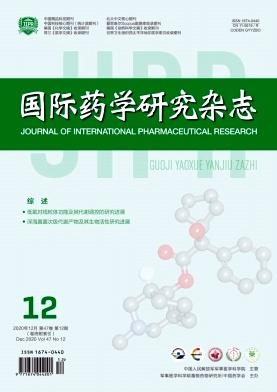Evaluation of 10 kits for antibody detection of SARS-CoV-2
Q4 Pharmacology, Toxicology and Pharmaceutics
引用次数: 1
Abstract
Objective: To provide data reference for the clinical diagnosis of COVID-19, promote the innovation and improvement of antibody detection technology of COVID-19, and discuss the application of antibody detection of new coronavirus by evaluating the sensitivity, specificity, compliance rate and limit of antibody detection in 10 SARS-CoV-2 antibody detection kits Methods: According to the instructions of 10 new coronavirus antibody detection kits, the specific IgM and IgG in 74 serum samples were detect- ed, and the limit of detection of each kit was tested with 10 samples diluted by a 2-fold gradient Results: The coincidence rate of 10 kits(product A-product J)were 89 2%(66/74), 89 2%(66/74), 86 5%(64/74), 95 9%(71/74), 52 7%(39/74), 75 7%(56/74), 86 5%(64/74), 79 7%(59/74), 50 0%(37/74), 20 3%(15/74), respectively In the detection limit tests for the kits A-J with the 10 of 2x gradient diluted samples, the performance of kit C was the best, with the limit of detection for IgM 0 16AU/ml and the limit of detection for IgG 1 00 AU/ml Conclusion: There are significant differences in sensitivity, specificity, compliance and limit of detection of 10 new coronavirus antibody testing reagents, and the product of high sensitivity, specificity, and compliance rates should be selected for clinical applications to ensure the accuracy of test results10种SARS-CoV-2抗体检测试剂盒的评价
目的:通过评价10种SARS-CoV-2抗体检测试剂盒的抗体检测敏感性、特异性、符合率和限检率,为临床诊断COVID-19提供数据参考,促进COVID-19抗体检测技术的创新和完善,探讨新型冠状病毒抗体检测的应用。根据10种新型冠状病毒抗体检测试剂盒说明书,对74份血清样本进行特异性IgM和IgG检测,10份样品经2倍梯度稀释后检测各试剂盒的检出限:10种试剂盒(产品a -产品J)的符合率分别为89.2%(66/74)、89.2%(66/74)、86.5%(64/74)、95.9%(71/74)、52.7%(39/74)、75.7%(56/74)、86.5%(64/74)、79.7%(59/74)、50%(37/74)、203%(15/74)。在10倍梯度稀释样品对试剂盒A-J的检出限试验中,试剂盒C的性能最好,对IgM的检出限为0 16AU/ml,对IgG的检出限为1 00 AU/ml。10种新型冠状病毒抗体检测试剂的灵敏度、特异性、依从性和检出限存在显著差异,临床应用时应选择灵敏度、特异性和依从率较高的产品,以保证检测结果的准确性
本文章由计算机程序翻译,如有差异,请以英文原文为准。
求助全文
约1分钟内获得全文
求助全文
来源期刊

国际药学研究杂志
Pharmacology, Toxicology and Pharmaceutics-Pharmaceutical Science
自引率
0.00%
发文量
10973
期刊介绍:
An intentional Journal which is published quarterly in English. Journal publishes papers, review articles, and short communications dealing with drug controlled release systems, pharmacodynamics, pharmacokinetics, pharmacogenomics, biopharmaceutics, drug and prodrug design, pharmaceutical analysis, drug stability, quality control, pharmaceutical engineering and materials science.Pharmaceutical Chemistry, Pharmaceutical Technology, pharmacognosy, natural product research, pharmaceutics, novel drug delivery, pharmaceutical & medicinal chemistry, computational chemistry and molecular drug design, pharmacology, pharmaceutical analysis, pharmacy practice, clinical and hospital pharmacy etc. IJPR would take much care in making your article published without much delay with your kind cooperation. IJPR hopes that Researchers, Research scholars, Academician, Industrialists etc. would make use of this research publications for the development of pharmaceutical science and technology.
 求助内容:
求助内容: 应助结果提醒方式:
应助结果提醒方式:


